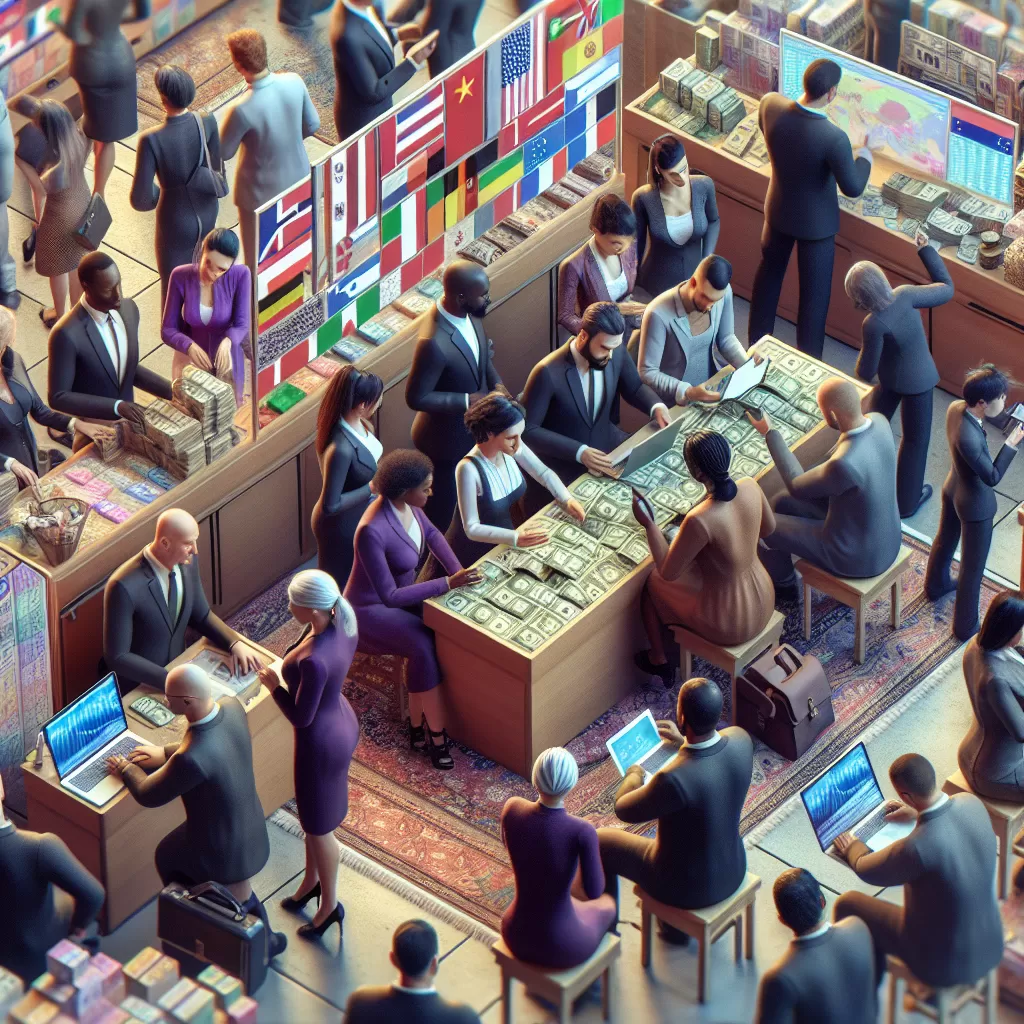What Is A Foreign Exchange
Follow Currency Mart April 10, 2024
Where to purchase Foreign Currencies?

Introduction to Foreign Exchange
Foreign exchange, or Forex, is the global marketplace for trading national currencies against one another. Due to international trade and investment, currencies need to be exchanged, creating a unique realm of liquidity and volatility where savvy traders, businesses and even governments interact.The Essence of Foreign Exchange
Every foreign exchange transaction involves the simultaneous buying of one currency and selling of another. This dual exchange originates from the barter system of old, transforming through centuries into the complex web of digital transactions we witness today in the Forex. For example, if you've ever travelled abroad, chances are you've made a foreign exchange transaction. When you exchanged your Canadian Dollars for Euros, you essentially sold your Canadian currency and bought Euros in return.The Significance of Foreign Exchange
At the heart of the global economy, Forex surpasses all other financial markets in terms of trading volume. The total value of Forex transactions each day is over $6 trillion, dwarfing the stock market, which pales in comparison. This massive market is crucial for carrying out international trade and business. If a Canadian company wants to import goods from the USA, they typically have to pay in US dollars. Hence, the company must exchange the equivalent value of Canadian dollars into US dollars.The Market Players of Foreign Exchange
The foreign exchange market draws in a diverse range of participants from all corners of the map. These vary from central banks that use Forex transactions for controlling money supply and inflation, to companies engaging in international trade, and tourists trading currencies for travel. Another group includes traders and investors who speculate on the changes in exchange rates. Their aim is to buy a currency at a lower price and sell it at a higher price to make a profit.The Dynamics of Exchange Rates
Foreign exchange rates are determined by the foreign exchange market. They fluctuate throughout each trading day as global financial centers open or close, circling around the world from Sydney, to Tokyo, London, and finally New York. These rates can be influenced by a variety of factors, including differences in inflation rates, interest rates, political instability, economic performance, and speculation.Foreign Exchange Trading Platforms
With the digital revolution, Forex trading became accessible worldwide through online platforms. They provide traders with advanced tools for analyzing trends, executing trades, and managing risk. MetaTrader 4, ForexTrader Pro, and TradeStation are just a taste of the many platforms allowing individuals to participate in Forex trading from the comfort of their own homes.Navigating Foreign Exchange Fees
Whether you're buying foreign money for travel or for trading, you're likely to encounter transaction fees. These might be directly stated as service fees or baked into the exchange rate as a spread - the difference between the purchase price and the sale price. As the Guardian of foreign exchange, I suggest comparing exchange rates between different providers to find the fairest rates. Online exchange resources and financial comparison websites can aid in this quest and even some mobile apps offer fee-free transactions.Conclusion
Foreign exchange, an intricate dance of numbers and values, is an indispensable part of our global economy. As you navigate through this realm, understanding its mechanisms, its players, and its charges can help you gain the best deals and avoid unnecessary losses. From the simplest tourist exchange to the complex speculative trade, every transaction contributes to the pulsating rhythms that drive the world of Forex.
Where to purchase Foreign Currencies?